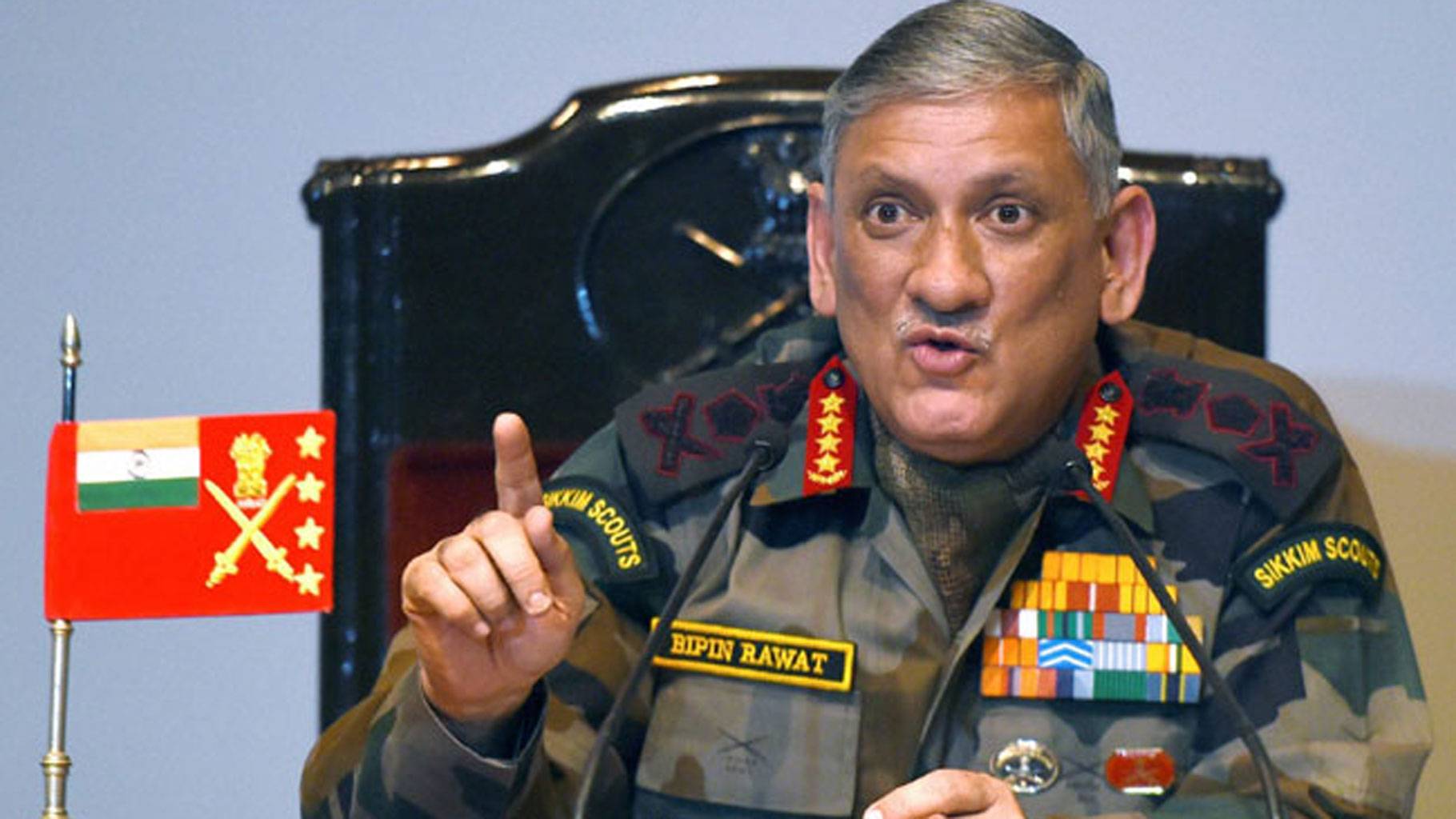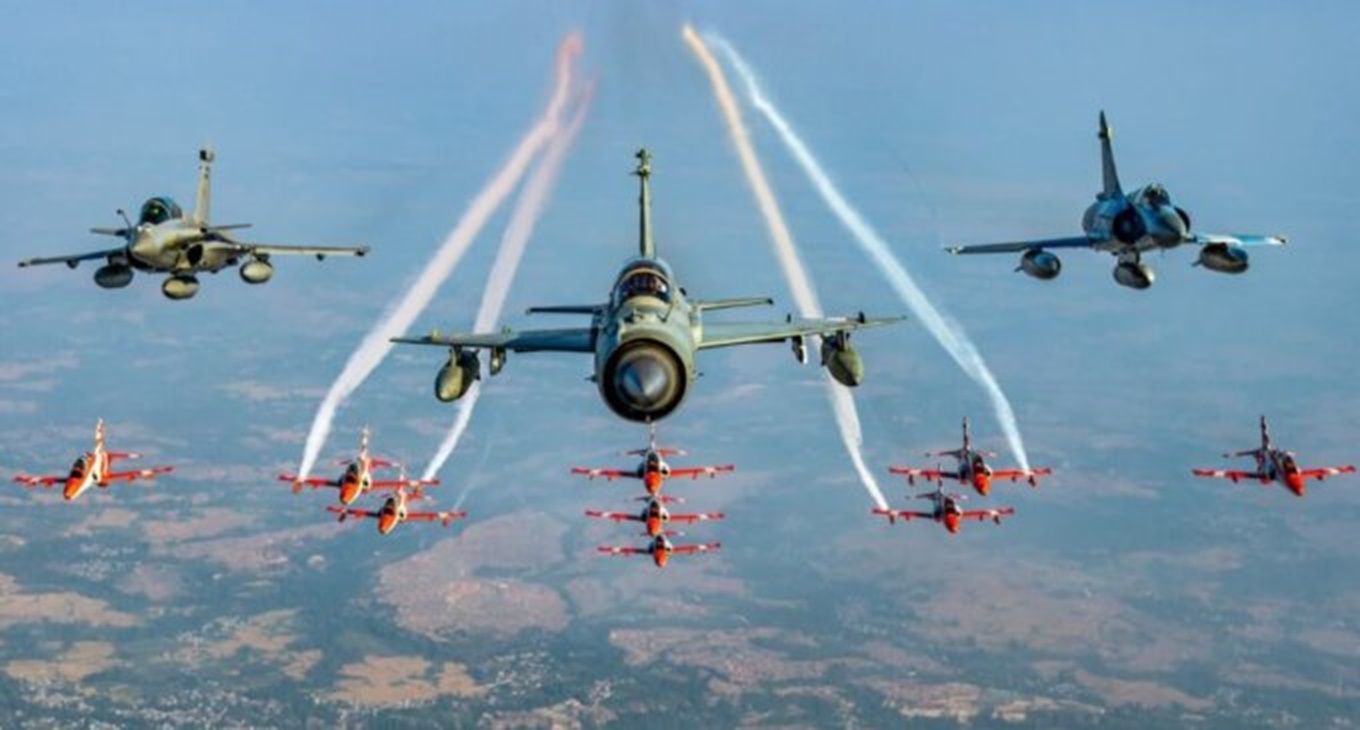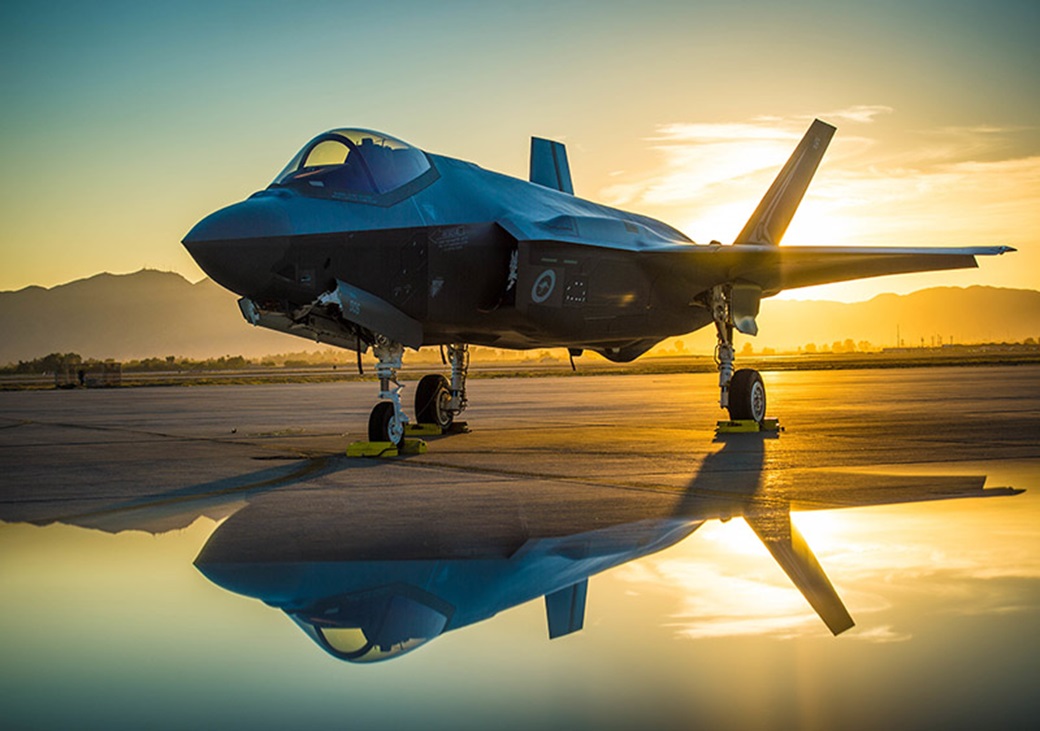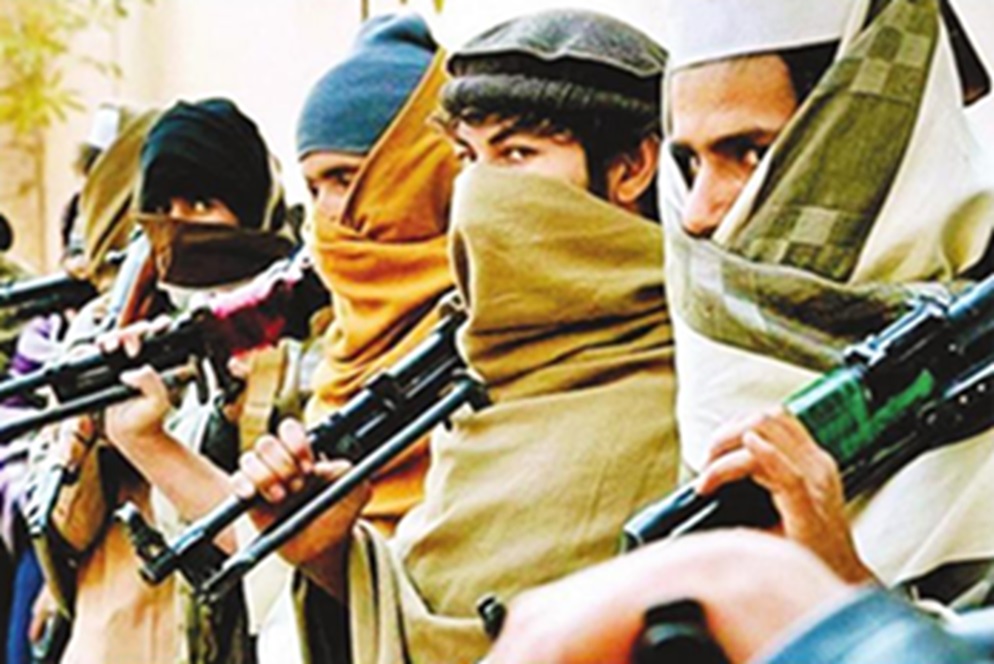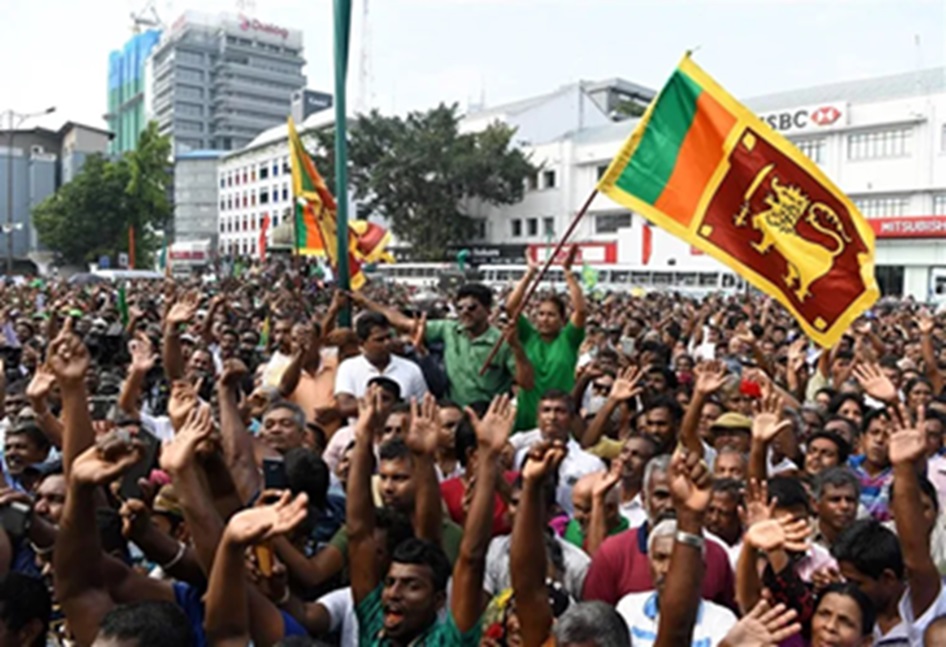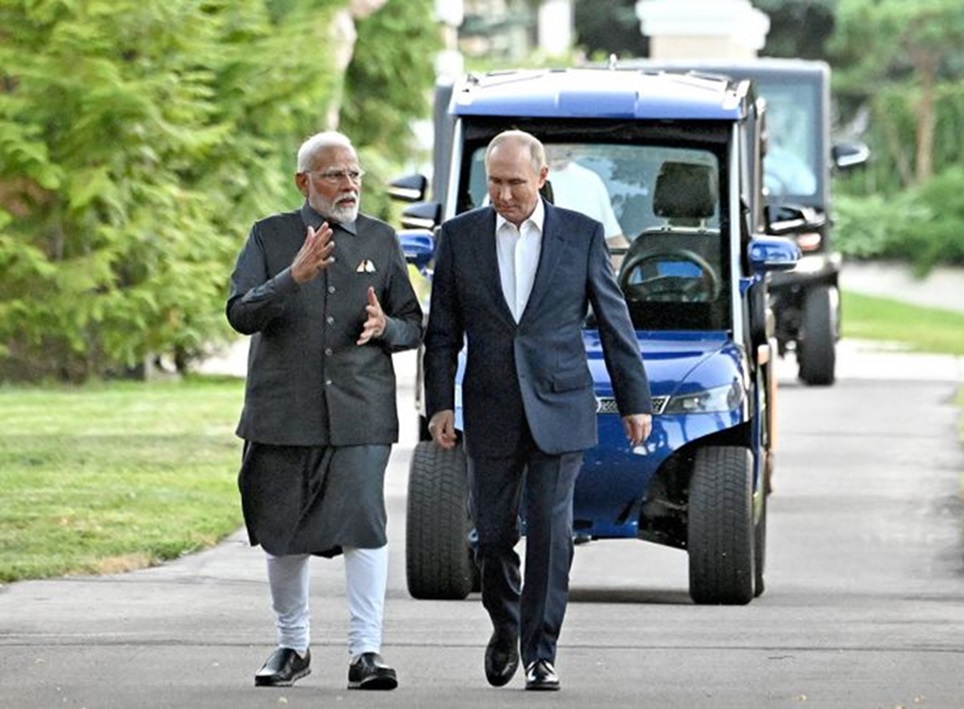Chief of Defence Staff (CDS) is the professional service chief heading the Indian Armed Forces and is the senior-most uniformed military adviser to the Government of India.
Indian Armed Forces were quite keen on the creation of the post of the ‘Chief of the Defence Staff (CDS) for many years. Finally, the dream came true with the appointment of General Bipin Rawat PVSM, UYSM, AVSM, YSM, SM, VSM, ADC in Dec 2019, as the first CDS. Since then, armed forces have gone through a unique experience from decisions of the CDS, which could be termed as ‘Shock and Awe’.
The above warrants some retrospection. This article accordingly tries to examine the concept, role and responsibilities of the Chief of Defence Staff, advantages and disadvantages, impact on the armed forces and higher defence management and make some suggestions.
Concept of CDS
In India, the first recorded instance of higher defence organization flourishing was in the empire of Chandragupta Maurya (4th Century BC). Moving forward, India was perhaps the only country in the world that had a single Commander-in-Chief for all the three Services, during the British era. However, this arrangement was discarded in 1947 and each Service came to have its own Commander-in-Chief, independent of each other. Now we seem to have gone a full circle around.
Historical Perspective
Indian Armed forces had been asking for the appointment of CDS for a long. Though the recommendations made by the ‘Task Force on the Management of Defence’ were accepted by the Group of Ministers, its implementation has been tardy.
As a start point government created ‘Integrated Services Headquarters’ with MoD and even re-designated the three SHQs as Integrated Headquarters, Ministry of Defence (Army/ Navy/Air Force). Further HQ Integrated Defence Staff was also created. However, these cosmetic reforms hardly meant anything. The bureaucratic stranglehold still remained in place.
Similarly, in the case of the creation of CDS, post attempts were made, by the vested interests, to derail the recommendation of the Task Force, accepted by the Group of Ministers and approved by the Cabinet. A large almost ceremonial Integrated Defence Staff (IDS) had served a very little purpose. Without a CDS, the required professional coordination and unified approach had been lacking. Some of the arguments subtly put forth for scuttling the appointment of the CDS were:-
- Political leadership’s fear of the proverbial man on the horseback. It was apprehended that the Defence Services will become too powerful and subvert civilian control over the military, a military coup will occur.
- Opposition of the civilian bureaucracy to any arrangement in which their dominance and stranglehold over the higher defence set up is diminished.
- Feeling among the smaller Services, particularly the Air Force, of Army dominance in defence policy formulation and fear that a CDS may lead to a situation like the one that prevailed before 1947, when the Army was the dominant Service.
- Inhibitions of serving Service Chiefs that their position would get undermined if the CDS were to be appointed.
However, the fear that a CDS will erode the supremacy of the civil over the military is unfounded. The CDS will not be a Supreme Commander (Sinha, 2020)
Duties and Functions of the CDS
The duties and functions of the Chief of Defence Staff (CDS) include the following:
- To head the Department of Military Affairs in the Ministry of Defence and function as its Secretary.
- To act as the Principal Military Advisor to Hon’ble Raksha Mantri on all Tri-Service matters.
Role of CDS
The Chief of Defence Staff is described by officials as the “first among equals” among service chiefs. The CDS will be tasked with:-
- Trimming weapons procurement procedures and integrating operations of the Indian armed forces- Army, Air Force and Navy.
- Being the military advisor for the government
- Head the Department of Military Affairs.
- Have the authority to direct the service chiefs of Army, Navy and Air Force and will also have the authority to create theatre commands as and when needed.
(Source: India Today, 2019)
Advantages and Disadvantages of having CDS
As we have seen, The Chief of Defence Staff (CDS) is a high military office that will oversee and coordinate the working of the three defence services in India. CDS would not only ensure coordination among various defence forces but will lead to enhanced security in the region.
Benefits of having CDS
It has been assessed that appointment of the CDS would help in:-
- Providing effective leadership at the top level to the three wings of the armed forces.
- Achieving greater coordination and synergy among the tri-services.
- Tackling threats from the cyber and space sector in an integrated manner and would help in the optimal use of available resources.
- Effective Policy-making on operations, procurement and joint logistics will improve.
- Providing a single, all-encompassing coherent and cohesive perspective, instead of disaggregated individual single service perspective.
- Correcting the anomaly of the civic-military interface during the shaping/ deterrence phase, during operations, or after the occurrence of threatening situations.
- Holistic management of national security for optimised results and single-point military advice on matters of national security including nuclear weapons.
Some Perceived Negative Impacts
Some drawbacks have also been perceived. They are:-
- CDS may not have the full experience of every force except his own in which he served. This may lead to friction between CDS and the head of the other two forces and may prove counter-productive.
- Concentrating power, as well as responsibility, in one person, may not produce the desired result. A body like a Council headed by CDS can produce desired results.
- Undermining position of the service chiefs, as that post would become less important with coming of CDS, resulting in some discord.
- The civil bureaucracy will lose its power and would lead to political and bureaucratic inaction.
(Source: blogforumias, ND)
The CDS post is yet nascent (Dec 2019) and evolving. Thus above pros and cons need to be validated after giving more time for the Department of Military Affairs to stabilise. After focusing on the Concept of CDS let us now briefly analyse India higher Defence Management.
Impact on the Armed Forces
The appointment of the CDS has resulted in a mixed bag of results. Some decisions by CDS have been seen as progressive and some retrograde.
Some of the progressive decisions include the following:-
- Prioritisation of India’s weapons procurements based on an accepted joint warfighting doctrine predicated in turn on national security policy aims. This would bring greater coherence to the doctrine and authorise corresponding amendments if warranted to the Long Term Integrated Procurement Plan (LTIPP). Such a pragmatic approach would give greater credence to LTIPP in future.
- Integration of repairs and recovery, infrastructure development, victualling for all the three services, or procurement of rations, fuels, oils or lubricants and management of military lands.
- Training is another area. While some level of joint training already exists in important staff courses conducted by the Defence Services Staff College (DSSC) at Wellington, CDS could substantially enhance the joint syllabus in such courses.
- Serious consideration of Jointmanship- in the form of theatre commands, logistics hubs etc.
(Source: Deb, 2019)
As known, the good comes with the bad too. Certain decision/comments of the CDS have been considered retrograde by the defence community. Some of them are:-
- Comments on the moral fibre of officers. The armed force’s officers are dedicated to their duty (barring some examples). Casting generalised aspersion lowers the prestige of the defence community in the eyes of the civil side.
- Cutting down on the perks of defence officers:- while travelling on duty ( e.g. discontinuation of stay in hotels), Canteen Stores Department,
- Dilution of security of Army cantonments and areas.
- Cutting down on unit messes and discontinuation of long-standing traditions to save meagre funds.
- Impacting pensions and disability pensions
- Ignoring the need for a young profile of officers
- Break-in dialogue with the veterans, lowering of facilities for veterans including medical.
- Negation of important procurement needs of the armed forces. To cite an example negation of the need of the third aircraft carrier despite its overwhelming need in view of China’s forays in the Indian Ocean Region. Admiral Prakash has rightly said on this subject that:
“It is time to capitalise on our maritime geography and buttress our navy while mobilising regional friends in the common cause of peace and tranquillity. Strategic planners must bear in mind that it will not be its inventory of tanks or combat aircraft that make India an attractive partner for the US or the Quadrilateral and ASEAN. It will be India’s ability to project influence in distant reaches of the Indo-Pacific, via its maritime power (Prakash, 2020).“
It is thus important that CDS and the Department of Military Affairs (DMA) evaluate various aspects in details and consult the respective service chiefs before arriving at decisions that can have serious long term impacts on defence preparedness, national interests, geo-politico-economic security of the nation and morale.
India and Higher Defence Management
Unfortunately, India is the only country with an MoD without military professionals and bureaucrats lacking a military background and knowledge taking decisions. As a result, India lacks a cohesive national security strategy; national security objectives remain undefined. There is little synergy within the military and also the military-industrial complex remains in a pathetic state.
With the passage of time, the Indian strategic community has come to regard the integration of the military into policy-making structures as the silver bullet for institutional problems in national security. But this observation has two faces:
- Politicians and bureaucrats generally opt to steer clear of the military turf and refrain from a deeper engagement with military matters, especially those falling within the sacrosanct domain of the “operational matters”. The changes now ushered in will hardly solve this crucial problem. If anything, political leaders will now be more susceptible to military advice without any corresponding increase in their ability to interrogate them or benefit from alternative and informed views on these issues.
- The perceived inability of the military’s leadership to operate in the new domain of policy-making. It is a fact that the military is deeply deficient on this count. This is attributable to the military being kept out of this space for long and armed forces’ professional military training has been narrow, unimaginative and crimped.
(Source: Raghavan, 2020)
It is hoped that the appointment of Chief of Defence Staff would help in removing above stated lacunas and help in improving higher defence management quality.
It is also hoped that CDS would give a vital push to the training of armed forces. Currently, none of the Indian military educational institutions offers any serious training in international relations or economics, history or public policy. The training mainly focuses on preparing officers primarily for operational and logistical roles, and lack serious academic training. CDS would need to do a thorough overhaul of professional military education, to enable the military to meaningfully work the new structures that are taking shape. India needs to put its armed forces officers through a serious education and prepare them for serving as policy-makers as well as soldiers. Raghavan (Raghvan, 2020a) has very rightly said on the subject:-
Finally, it is important that the military and its leadership are cognizant of dangers that lurk as they embark on this new institutional journey. In his seminal work on civil-military relations, the late Samuel Huntington differentiated between subjective civilian control over the military and objective control. The latter he defined as marked by an inviolable military sphere of action whose counterpart was the military’s evacuation of the sphere of politics. Subjective control, by contrast, operated on an ideological affinity between military and political leaders. In the past, we have had a system that approximated objective control. And, as we move ahead, it is imperative not to slip into any variant of subjective control.
It’s well understood that CDS has a difficult task ahead. Thus in the coming months and years, CDS and India’s military brass need to formulate a course of action that enables the armed forces to contribute both well and wisely to national security. It has been observed that the creation of the CDS & military integration process is not a silver bullet for institutional issues related to national security. With the increase in China’s aggressive behaviour, India’s political leadership will now be more dependent on military advice from the CDS. It puts more responsibility on the CDS and DMA to successfully navigate the uncharted waters, to prove the decision of appointing CDS as right and steadily enhance its role in India’s defence planning.
The current reforms are very dynamic and it may help if CDS could create a vision document explaining the rationale, powers and role of the DMA (and the CDS itself) within the Services and the Ministry of Defence (Mukherjee, 2020).
Conclusion
The appointment of General Rawat as Chief of Defence Staff (Dec 2019) has been a significant milestone. The decision emanation from the Office of the CDS and Department of Military Affairs (DMA) has had both good and bad impacts on the armed forces and higher defence management. It has been observed that the effectivity of decisions of the CDS was more in a centralised manner rather than through a consultative process. In a complex scenario of defence management carrying the team along is very vital and needs to be given more weightage. It is understood that every new thing has its own teething trouble and we can hope things would settle down for the better as time passes. Some suggestion for consideration are as follows:-
- Prioritisation of the weapons procurement should be done based on the threat perceptions, national interests and consultation with the particular service arm.
- Revamp the training for armed forces officers should be considered and elements of International Relationships, Economics, Financial Management and History.
- Incentivise domain expertise and formulate appropriate policies to groom officers to assume such unique positions demanding deeper and effective interaction between the civilian and military bureaucracies.
- Create appropriate organisational ethos which would promote a smooth interface between the DMA, the services and the Ministry.
Finally it is recommended that one aspect which could not reflected upon in this article and would need more research is correlation of China’s aggressive behaviour and appropriate equipment/systems needed by the Indian Armed Forces for effectively deterring China.
Title Image Courtesy: https://www.dailyo.in/voices/bipin-rawat-aiudf-indian-army-bangladesh-migrants-muslims/story
Disclaimer: The views and opinions expressed by the author do not necessarily reflect the views of the Government of India and Defence Research and Studies

